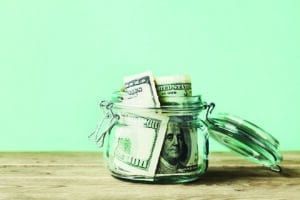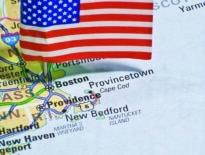
Many poor and working-class Massachusetts residents have no or limited relationships with a bank or credit union, forcing them to rely on expensive check-cashing services and other alternative financial products.
Last week provided a reminder of the effects of being unbanked: The Treasury Department began mailing economic aid in the form of prepaid debit cards to 4 million people, more than a month after the first wave of $1,200 payments landed in bank accounts for 80 million people.
The sudden arrival of the coronavirus pandemic has highlighted challenges many poor and working-class Massachusetts residents face having no banking relationships, including delays in receiving critical funds, costs for alternative services and struggles navigating the Paycheck Protection Program. Many of the same individuals and households experiencing financial difficulties from being unbanked are also among those disproportionately affected by COVID-19.
“Our focus was very much on the understanding that, certainly, the economic impact would hit our population – gang-involved individuals and families – particularly hard,” said Mark Culliton, CEO of College Bound Dorchester, who recently had 40 unbanked clients in need of accounts. “We didn’t at that time realize that the health impact would mirror the economic impact and that these would be some of the most hard–hit neighborhoods, communities and individuals.”
College Bound Dorchester was able to get bank accounts for its clients because of an existing relationship with Eastern Bank, but advocates and bankers say more financial institutions are needed to step into the breach to help the un- and underbanked during economic challenges economists say could linger.
Thousands Unbanked in Mass.
Across the U.S., 6 percent of adults did not have a checking, savings or money market account in 2019, according to the Federal Reserve’s annual report on economic well–being released this month. Another 16 percent of adults were underbanked – they had a bank account but still used an alternative financial services product, including money orders and check-cashing services.
The unbanked and underbanked “were more likely to have low income, have less education or be in a racial or ethnic minority group,” the Fed said, and 14 percent of those with incomes below $40,000 were unbanked. Fourteen percent of Black adults and 10 percent for Hispanic adults were unbanked last year, the report found.
Of the individuals who used alternative financial products, 88 percent cashed a check or purchased a money order. These services carry higher fees than traditional banking products, leaving unbanked and underbanked households with less income.
A 2017 FDIC study showed 2.6 percent of Massachusetts households were unbanked. With approximately 2.6 million households in Massachusetts, according to U.S. Census data, the state could have about 67,000 unbanked households.
Not long the coronavirus pandemic shut down the economy, Eastern Bank President Quincy Miller saw firsthand the effects of being unbanked.

The coronavirus crisis shows the need for more banks and credit unions to help poor and working-class Massachusetts residents develop banking relationships, advocates say.
In a Saturday morning email from College Bound Dorchester’s Culliton, Miller learned that the organization #GiveTogetherNow had offered three $500 monthly payments to 80 students in College Bound’s Boston Uncornered project, which provides mentoring and stipends for former gang members to pursue educational opportunities.
But about half the students did not have bank accounts, meaning they could not receive the money. Miller right away connected Culliton with Barbara Heinemann, Eastern Bank’s executive vice president and consumer banking director, who created a centralized process so Culliton and his staff could help the students complete account applications. Each student had valid identification, and the bank followed all know-your-customer requirements, Heinemann said, taking on no additional risk.
The students received savings accounts with ATM cards rather than checking accounts that could create overdraft problems. Boston Uncornered mentors plan to work with the students on managing the accounts, Heinemann added, so they remain part of the banking system and eventually move into checking accounts.
Barriers Stand in the Way
To bring more people into banking, Heinemann said the industry needs to remove barriers, including lowering minimum balances and fees, working with people on their credit histories, providing role models for those unaccustomed to banking, overcoming language barriers and promoting financial literacy.
“Our approach is to look at how can we make banking accessible to the unbanked and underbanked where we can,” Heinemann said. “There’s always more that can be done, but as an industry, we have to remove the barriers.”
Several Massachusetts organizations have taken steps to make banking more accessible.
About 70 banks and credit unions participate in the Basic Banking for Massachusetts program sponsored since 1994 by the Massachusetts Community & Banking Council. Institutions in the program agree to offer low-cost checking and savings accounts.
And Boston’s Office of Financial Empowerment has launched a local affiliate of the CFE Fund’s Bank On program, while in Worcester, the Worcester County Action Council has created an outpost there.
Bank On Worcester County is a collaboration between the WCAC, UniBank and the Health Foundation of Central Massachusetts. Bay State Savings Bank, Berkshire Bank, Cornerstone Bank, Digital Federal Credit Union and Fidelity Bank also participate.
Jenna Wills, Bank On Worcester County’s coordinator, said while the program started off slowly, nonprofit organizations and social services agencies throughout the region now know about the initiative and refer clients to the institutions.
“It took us a while to figure out that it took more than one opportunity or one meeting with someone to encourage them to open a Bank On account,” Wills said. “We found that case managers who work for various agencies were the best group of people to offer this account, instead of just passively putting cards out at the library or other places where resources were available.”
Charla Hixson, WCAC’s chief strategy officer, said community partners help build trust in banking relationships, another barrier to opening accounts. The stress associated with poverty, which has been exacerbated during the coronavirus crisis, and the psychological difficulty of talking about finances are other barriers, Hixson said.

Diane McLauglin
“We already know that financial capabilities are one of the keys to overcoming poverty,” Hixson said. “Now in this time that will go on for a little while of increased need and lost jobs and income, we know we have a lot of work ahead of us.”
Miller said Eastern Bank found out about College Bound Dorchester’s need only because the bank and its leaders have been longtime supporters of the nonprofit. He said bankers can help unbanked and underbanked communities by getting “outside their four walls.”
“If you really want to make an impact, you got to get connected to the community and connect in the community where these organizations are working with the underbanked and the non-banked communities,” Miller said “Those community organizations have already built a level of trust with them.”




 |
| 
